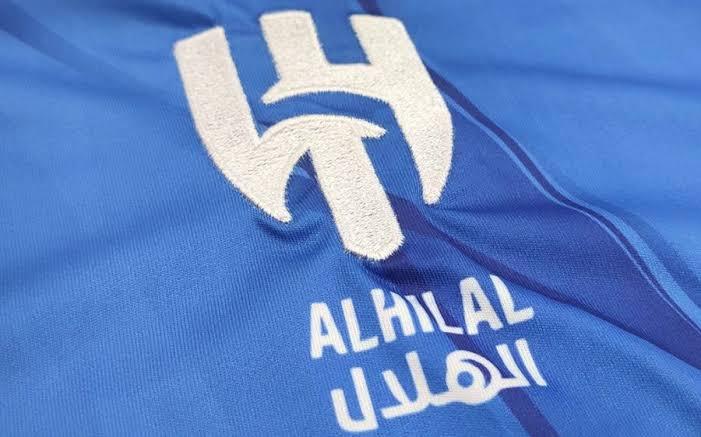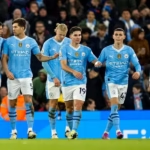Al-Hilal’s Ambitious Pursuit of Darwin Nunez: A Deep Dive into the Saudi Arabian Transfer Revolution

The world of football transfers has undergone a seismic shift in recent years, with Saudi Arabian clubs emerging as major players in the global market. At the forefront of this revolution stands Al-Hilal, one of the Kingdom’s most prestigious clubs, who have set their sights on Liverpool’s Darwin Nunez as their primary transfer target. This potential move represents more than just another high-profile acquisition; it symbolizes the continuing transformation of football’s economic ecosystem and the growing influence of Middle Eastern investment in the sport.
The pursuit of Nunez by Al-Hilal comes at a time when the Saudi Pro League has already attracted numerous world-class talents, fundamentally altering the perception of football outside Europe’s traditional powerhouses. With substantial financial backing and ambitious sporting projects, Saudi clubs have positioned themselves as serious contenders for the world’s elite players, offering lucrative packages that often dwarf those available in Europe.
Darwin Nunez’s journey at Liverpool has been a tale of immense potential coupled with inconsistent performances. The Uruguayan striker arrived at Anfield with great fanfare, carrying the weight of expectation that comes with being one of the club’s most expensive signings. His pace, physicality, and finishing ability made him an attractive proposition for Jurgen Klopp’s system, yet his time on Merseyside has been characterized by flashes of brilliance interspersed with periods of frustration.
Last season proved particularly challenging for Nunez, as he managed just seven goals across all competitions – a return that fell well short of expectations for a player of his caliber and price tag. The striker often found himself relegated to substitute appearances rather than commanding a regular starting position, suggesting that he may have struggled to fully adapt to the demanding requirements of Premier League football and Liverpool’s tactical system.
Under Arne Slot’s new regime, Nunez’s position at the club appears even more precarious. The Dutch manager’s tactical preferences and the arrival of Hugo Ekitike have added further competition for places in Liverpool’s forward line. This changing dynamic at Anfield has created an environment where a departure might benefit both player and club, opening the door for interested parties like Al-Hilal to make their move.
The striker’s situation reflects the broader challenges faced by many South American players when transitioning to European football. Cultural adaptation, tactical adjustments, and the pressure of high-profile transfers can all contribute to inconsistent performances. For Nunez, a move to Saudi Arabia could represent an opportunity to rediscover his confidence and showcase the abilities that made him such a sought-after prospect.
Al-Hilal’s interest in Nunez is not merely opportunistic but forms part of a broader strategic vision to establish themselves as a global footballing powerhouse. The Riyadh-based club has consistently demonstrated their ambition through high-profile acquisitions and substantial investments in infrastructure and youth development. Their pursuit of the Liverpool striker aligns with their philosophy of targeting players who possess both immediate impact potential and long-term value.
The Saudi Arabian giants have been methodical in their approach to the transfer market, carefully identifying targets who can contribute to their domestic success while also raising the profile of the Saudi Pro League internationally. Nunez represents an ideal candidate in this regard – a player with proven quality at the highest level who could thrive in a different environment while bringing significant commercial and sporting value to the club
Al-Hilal’s transfer strategy has evolved considerably over recent years, moving beyond purely domestic considerations to embrace a more cosmopolitan approach. The club’s willingness to invest heavily in foreign talent demonstrates their commitment to competing not just locally but on the global stage. This ambition extends beyond individual signings to encompass a comprehensive vision of sporting excellence that could reshape perceptions of Middle Eastern football.
The club’s pursuit of various high-profile strikers, including Victor Osimhen, Benjamin Sesko, and Alexander Isak, before focusing on Nunez, illustrates their methodical approach to recruitment. Rather than making impulsive decisions, Al-Hilal appears to be carefully evaluating their options and identifying the player who best fits their specific requirements and budget constraints.
The potential transfer of Darwin Nunez to Al-Hilal must be understood within the context of modern football’s financial landscape. Saudi Arabian clubs have fundamentally altered the economics of player transfers through their ability to offer packages that often exceed those available in traditional footballing markets. This financial muscle has enabled them to attract players who might otherwise have remained in Europe throughout their peak years.
For Liverpool, the prospect of offloading Nunez could provide significant financial benefits, particularly given their apparent interest in pursuing other targets such as Alexander Isak. The transfer fee generated from Nunez’s sale could substantially contribute to funding new acquisitions while also reducing the club’s wage bill. This financial flexibility is crucial in an era where Financial Fair Play regulations and prudent financial management are increasingly important considerations for major clubs.
The economics of such transfers extend beyond simple transfer fees to encompass broader commercial considerations. Nunez’s move to Saudi Arabia would likely involve substantial wages and bonuses, reflecting the competitive nature of the global transfer market. For the player, such financial incentives could prove compelling, particularly given the tax advantages and lifestyle benefits that often accompany moves to the Middle East.
From Al-Hilal’s perspective, the investment in Nunez represents more than just acquiring a talented striker. The commercial value generated through increased global exposure, merchandise sales, and enhanced brand recognition could justify the significant financial outlay required to secure his services. This holistic approach to player valuation has become increasingly common among ambitious clubs seeking to maximize their return on investment
Darwin Nunez’s potential fit within Al-Hilal’s tactical system presents intriguing possibilities for both player and club. The striker’s pace and direct running style could prove particularly effective in the Saudi Pro League, where defensive organizations may be less sophisticated than those encountered in the Premier League. His ability to stretch defenses and create space for teammates could unlock new tactical dimensions for Al-Hilal’s attacking play.
The physical demands of Saudi Arabian football, while different from those in England, could actually suit Nunez’s playing style. The climate and playing conditions might require different approaches to fitness and preparation, but his natural athleticism and robust physical presence suggest he could adapt successfully to these new challenges. Moreover, the potentially less intense defensive pressure could allow him more time and space to demonstrate his technical abilities.
Al-Hilal’s tactical philosophy under their current management appears well-suited to accommodating a player of Nunez’s profile. The club’s emphasis on attacking football and their willingness to build their system around key players could provide the Uruguayan striker with the platform he needs to rediscover his best form. The reduced pressure compared to Liverpool’s high-stakes environment might also contribute to improved performances and greater consistency.
The striker’s international experience with Uruguay could prove valuable in helping him adapt to new tactical requirements and playing conditions. His exposure to different styles of play and varying levels of opposition has equipped him with the versatility needed to succeed in diverse footballing environments. This adaptability could be crucial in maximizing his impact at Al-Hilal while contributing to the team’s overall tactical evolution
The potential transfer of Darwin Nunez to Al-Hilal represents more than just an individual career move; it symbolizes the continuing evolution of global football’s power dynamics. Saudi Arabian clubs’ ability to attract established European-based players challenges traditional assumptions about career trajectories and the hierarchy of world football. This shift has profound implications for how players, agents, and clubs approach transfer decisions.
The Saudi Pro League’s growing influence is reshaping conversations about football development and competitive balance. By attracting high-profile players during their prime years rather than at the twilight of their careers, Saudi clubs are elevating the standard of their domestic competition while also challenging European leagues’ dominance in the global football ecosystem. Nunez’s potential move would contribute to this broader transformation.
For other players considering similar moves, Nunez’s experience could prove influential in shaping perceptions about the viability and attractiveness of Saudi Arabian football. Successful transitions by high-profile players often encourage others to consider similar opportunities, potentially accelerating the flow of talent toward emerging football markets. This ripple effect could have long-term implications for the global distribution of footballing talent.
The commercial implications extend beyond individual transfers to encompass broader questions about football’s global reach and market development. Saudi Arabia’s investment in football forms part of a wider strategy to diversify their economy and enhance their international profile. The success or failure of high-profile signings like Nunez could influence the long-term sustainability and appeal of these investments.
While Al-Hilal appears to be leading the pursuit of Darwin Nunez, they face competition from other interested parties, most notably AC Milan. The Italian giants’ interest in the striker reflects the ongoing appeal of European football and the Serie A’s reputation for developing and showcasing South American talent. This competition could influence both the terms of any potential deal and Nunez’s ultimate decision.
AC Milan’s interest is particularly intriguing given their recent appointment of Massimiliano Allegri as manager. The experienced Italian coach’s tactical acumen and track record of maximizing players’ potential could appeal to Nunez as he seeks to revitalize his career. The opportunity to play in one of Europe’s most prestigious leagues under a renowned manager presents a compelling alternative to the financial incentives offered by Saudi Arabian clubs.
The competition between different types of destinations – financial powerhouses versus traditional footballing institutions – reflects broader trends in modern football. Players increasingly face complex decisions that weigh financial considerations against sporting ambitions, cultural factors, and long-term career development. Nunez’s choice could influence how similar decisions are made by other players in comparable situations.
For Al-Hilal, the presence of European competition necessitates a comprehensive approach to player recruitment that extends beyond purely financial incentives. The club must demonstrate their sporting ambitions, tactical sophistication, and commitment to player development to compete effectively with established European institutions. This challenge could ultimately benefit the development of football in Saudi Arabia by raising standards and expectations.
Liverpool’s apparent willingness to consider offers for Darwin Nunez reflects broader strategic considerations about sq















